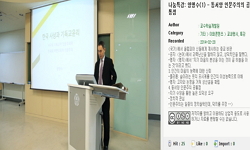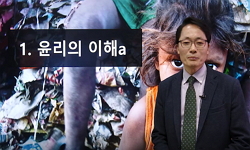This paper introduces Maryse Conde`s Windward Heights not as a postcolonial counter-discourse but as a self-help therapeutic moral novel for the writer, her own self. Windward Heights, a rewritng of Emily Bronte`s Wuthering heights and a postcolonial...
http://chineseinput.net/에서 pinyin(병음)방식으로 중국어를 변환할 수 있습니다.
변환된 중국어를 복사하여 사용하시면 됩니다.
- 中文 을 입력하시려면 zhongwen을 입력하시고 space를누르시면됩니다.
- 北京 을 입력하시려면 beijing을 입력하시고 space를 누르시면 됩니다.

영문학 작품 다시 쓰기의 의미 - Wuthering Heights와 Windward Heights의 경우 = Rewriting English Classics and its Meaning ―Bronte`s Wuthering Heights vs. Maryse Conde`s Windward Heights
한글로보기https://www.riss.kr/link?id=A40093655
- 저자
- 발행기관
- 학술지명
- 권호사항
-
발행연도
2003
-
작성언어
-
- 주제어
-
KDC
800
-
등재정보
KCI등재
-
자료형태
학술저널
- 발행기관 URL
-
수록면
1-22(22쪽)
- 제공처
-
0
상세조회 -
0
다운로드
부가정보
다국어 초록 (Multilingual Abstract)
This paper introduces Maryse Conde`s Windward Heights not as a postcolonial counter-discourse but as a self-help therapeutic moral novel for the writer, her own self. Windward Heights, a rewritng of Emily Bronte`s Wuthering heights and a postcolonial work which, as Ashcroft puts it, “covers the culture affected by the imperial process from the moment of colonization to the present day.” However, it is not a counter-discourse per se, because it dismantles racist theories by judging the behaviors of both black and white characters according to their moral attitudes: Razye, counterpart of Heathcliff, is condemned mostly for his anti-Christian cruelty, while Aymeric, Bronte`s Edgar, even though becomes bankrupt and dies, gets a humanistic redemption, and Irmine, Bronte`s Isabella, the poor victim of Razye`s vengence, overcomes the sad memory of her husband`s violence by Christian forgiving. All these humanistic aspects in Windward Heights lead the reader to understand the novel as the writer`s therapeutic device for her past painful history as “the other.” As Conde declares, writing for her is “a type of therapy,” “ a way to be safe and sound.” And to make a full use of it, she achieves a carnival of all the subaltern voices and call the black servants, the Creole fishermen, fishwives, Indians and children into the center of her story to let them reveal the hidden stories of the colonial Caribbean life and cry out the woes from their hearts so that all the “subalterns” can be at peace with the world. In relocating postcolonialism, reconciliation and “steroscopic vision” should be given the first priority.
동일학술지(권/호) 다른 논문
-
- 한국현대영미소설학회
- 강용기 ( Kang Yong Gi )
- 2003
- KCI등재
-
무질서 속의 질서 -존 혹스의 『희화화』와 리처드 파워즈의 『황금 벌레 변주곡』
- 한국현대영미소설학회
- 김상구 ( Kim Sang Gu )
- 2003
- KCI등재
-
현대 서사의 불안: 『프랑스 중위의 여자』에서의 역사주의와 반역사주의 사이의 긴장
- 한국현대영미소설학회
- 김성호 ( Kim Seong Ho )
- 2003
- KCI등재
-
- 한국현대영미소설학회
- 남기헌 ( Nam Gi Heon )
- 2003
- KCI등재




 KISS
KISS






